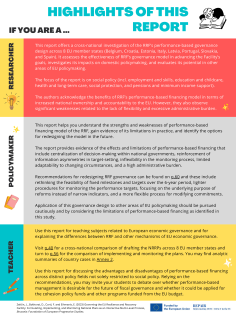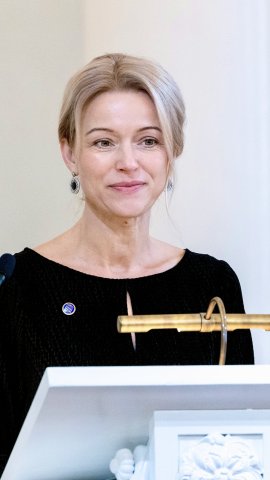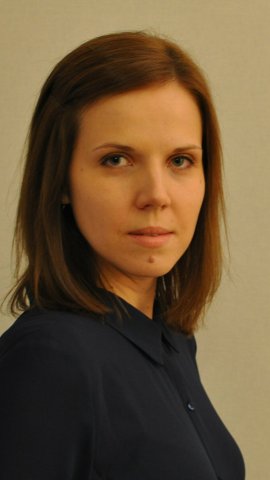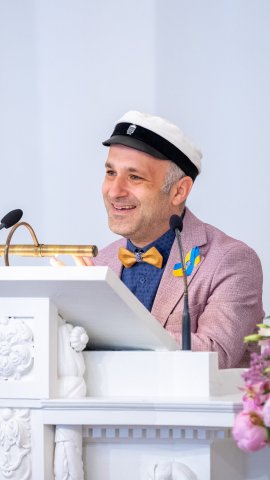REPAIR: Rejuvenating Democracy in the EU
The Rejuvenating Democracy in the EU (REPAIR) Jean Monnet Centre of Excellence will improve teaching and research in the area of EU Studies by analysing and seeking solutions to a wide range of contemporary challenges to democratic politics and governance in the European Union. This includes citizens’ growing dissatisfaction with the performance of democratic regimes, diminished trust in political institutions, eroding support for democratic principles, low electoral turnout, the rise of populist, extremist and Eurosceptic parties and movements, political polarization and radicalization, party system instability, and growing refusal of various political actors to play by democratic rules and accept the results of democratic elections. Given its geographical location in Tartu, Estonia, the Centre will pay particular attention to developments in the Baltic region and Central and Eastern Europe more broadly; it will also focus on democratic and authoritarian tendencies in the EU’s Eastern Neighbourhood. REPAIR will foster dialogue between the academic world, the public sector, civil society and different levels of education and media by modernizing and expanding EU-focused curricula and courses at the University of Tartu, generating new policy-relevant knowledge about contemporary threats to democracy as well as viable solutions, and launching a comprehensive training program for civics teachers in Estonian schools.
Workpackages
This WP will ensure the effective coordination and implementation of project activities. It organises Steering Group meetings and reports to the European Commission. It also leads efforts to ensure the sustainability of the Centre.
This work package aims to consolidate European Union related research expertise at the UT and to increase the quantity and quality of UT research in European studies. Thematic foci include public perceptions of democracy and patterns of democratic participation in EU member states, major threats to democracy in Central and Eastern Europe, European Parliament elections, socio-economic governance in the EU in the post-pandemic context and its relationship to democratic legitimacy, as well as democratic governance promotion in the EU’s Eastern neighbourhood. Additionally, this work package aims to formulate research-based policy recommendations and to engage in dialogue with public officials, policy practitioners, and experts.
This work package sets out to modernize and expand the multi-disciplinary teaching of European studies at the UT by carrying out a comprehensive reform of the curriculum of the European Studies Master’s programme. It also aims to develop three new EU-related courses, update existing ones, and promote the adoption and spread of innovative teaching methods in European studies. Training will be offered to young and first-time voters on European Parliament elections and civic and political participation types. Additionally, the link between academia, policymakers, civil servants, and civil society will be strengthened by involving stakeholders in curriculum and course reform. Two new courses, “European Elections” and “Political Economy of Green Transition in Europe” will be opened up to all students at the UT. A shorter online course on democracy and autocracy in the Eastern neighbourhood shall be created. The WP will organize simulations on decision-making of the Council of the EU as well as an annual REPAIR graduate conference in European studies, allowing students to present their work and receive feedback.
This WP assesses the EU-related training needs for civics teachers in Estonian schools and provides training on EU democracy, politics, and governance to around 100 practicing civics teachers. The WP works with teachers, experts, and stakeholders to develop and test didactic approaches for teaching EU politics and governance at schools. The WP collaborates with the Association of Estonian History and Civics Teachers and the Ministry of Education and Research in assessing the EU-related training needs of Estonian civics teachers. It will analyse the feedback received from the teacher training events and formulate best practices for civics teachers.
This WP disseminates the results of academic and policy-relevant research to relevant target groups and beneficiaries, including academics, policymakers, practitioners, and the general public. It promotes and disseminates novel approaches to teaching and learning about the EU to educators, students, and education experts. The WP will organize a range of public events connected to major events and anniversaries in 2024, including European Parliament elections, the 20th anniversary of the 2004 enlargement, and the city of Tartu serving as a European Capital of Culture.
Meet the team
Research team members' profiles in the Estonian Research Information System (ETIS)
Publications, policy reports, and media appearances
2025
Hosaka, Sanshiro. “A Mountain to Climb: Russia’s Influence in the South Caucasus and EU Policy Options.” Tallinn: International Centre for Defence and Security, January 2025
2024
Ehin, Piret; Kasekamp, Andres. Millisest Euroopa Parlamendist unistab Vladimir Putin? Propastop, 01.05.2024
Andrey Makarychev, Katarzyna Stoklosa, Gleb Yarovoy. 2024. Introduction. Europe-Russia Borderlands During the War in Ukraine: New Practices and Conceptualizations. European Foreign Affairs Review. Volume 29, Issue SI (2024) pp. 1 - 8.
Hublet, Francois; Ehin, Piret; Ikstens, Janis; Ramonaite, Aine (2024). Politics In The Shadow of the Russian Threat: Understanding Elections in the Baltic Nations, Electoral Bulletins of the European Union, Issue 5, Groupe d’Etudes Geopolitiques.
Zeitlin, J., Bokhorst, D. and Eihmanis, E. (2024) ‘Governing the European Union’s recovery and resilience facility: National ownership and performance-based financing in theory and practice’. Regulation & Governance. 11.09.2024
Edgars Eihmanis. (2024). ‘EU transnational coalitions in polycrisis: the Visegrád-4 before and after the Russo-Ukrainian war’. Journal of European Public Policy 0(0): 1–25
Kristina Muhhina, ICT-based co-production and democracy: Enacting space, people, and authority in polycentric sites of governance in Estonia. Government Information Quarterly, 41:1, doi.org/10.1016/j.giq.2023.101905
Braghiroli, S., Hagelin, S. More than neighbours: Assessing crisis narratives of Nordic-Baltic elites in the context of European Union’s eastern border. New Perspectives, 0(0). DOI: 10.1177/2336825X241230833
2023
Naczyk, M. and Eihmanis, E. (2023) ‘Populist party-producer group alliances and divergent developmentalist politics of minimum wages in Poland and Hungary’, Competition & Change, 09.11.2023
Sandra Hagelin (2023), Framing Entangled Borders in the Baltic States, Journal of Borderlands Studies, 07.11.2023
Sofia Vasilopoulou, Liisa Talving. Euroscepticism as a syndrome of stagnation? Regional inequality and trust in the EU. Journal of European Public Policy. 06.10.2023.
Edgars Eihmanis. ‘Ten Years of the European Semester: policy goals, effectiveness and legitimacy’, in D. Adamski, F. Amtenbrink, and J. de Haan (eds). The Cambridge Handbook on European Monetary, Economic and Financial Market Integration. Cambridge: Cambridge University.
Stefano Braghiroli, Europe’s Russia-Friendly Parties Put to the Test by Putin’s Invasion of Ukraine, Journal of Regional Security, 18:1, 29–38. DOI: 10.5937/jrs18-41766
Muhhina, Kristina. Governance improvement by sectoral cooperation: toward a framework of policy designs for the Eastern neighbourhood. East European Politics, 39 (3), 434−456. DOI: 10.1080/21599165.2022.2136653
Andrey Makarychev, "Reactive Re-Bordering, Geopolitics and Biopolitics: Estonia at Europe’s Eastern Flank", Alternatives, 08.06.2023
Khutkyy, Dmytro; Matveieva, Olga; Mirza-Grisco, Diana. Voting in online surveys on open government policies in Moldova and Ukraine. Internet Policy Review, 12 (2). DOI: 10.14763/2023.2.1712
Liisi Veski, "Towards stronger national unity: statist ideas in Estonian nationalism during the “Era of Silence” (1934–1940)", Journal of Baltic Studies, 16.03.2023
Stefano Braghiroli, "Europe’s Russia-Friendly Parties Put to the Test by Putin’s Invasion of Ukraine", Journal of Regional Security, 7.03.2023
2022
Ehin, Piret; Solvak, Mihkel; Willemson, Jan; Vinkel, Priit. Internet voting in Estonia 2005–2019: Evidence from eleven elections. Government Information Quarterly, 39 (4), 101718. DOI: 10.1016/j.giq.2022.101718
Braghiroli, Stefano. The European Parliament put to the test by COVID-19: voting dynamics and coalition patterns of the EP's first response to the global pandemic. Journal of Contemporary European Studies, 30 (4), 682−705. DOI: 10.1080/14782804.2021.1934421
Braghiroli, Stefano; Makarychev, Andrey. Сonservative populism in Italy and Estonia: playing the multicultural card and engaging “domestic others”. East European Politics, 1−22. DOI: 10.1080/21599165.2022.2077725
Toplisek, Alen; Oellerich, Nils; Simons, Jasper P.; Eihmanis, Edgars. Path dependency and partisan interests: explaining COVID-19 social support programmes in East-Central Europe. East European Politics, 38 (4), 641−661. DOI: 10.1080/21599165.2022.2122046
Bohle, Dorothee; Eihmanis, Edgars. East Central Europe in the COVID-19 crisis. East European Politics, 38 (4), 491−506. DOI: 10.1080/21599165.2022.2122051
2023
| Jonathan Zeitlin, David Bokhorst, and Edgars Eihmanis. Governing the RRF: Drafting, Implementing, and Monitoring National Recovery and Resilience Plans as an Interactive Multi-Level Process. Foundation for European Progressive Studies (FEPS) Policy Study, June 2023. |
Image

|
| Heidi Ann Erbsen, (via Alliance4Life policy paper) "Euroopa innovatsioonilõhe sulgemist pärsib liigne hoogtöö", Novaator, 14.06.23 | |
| Dmytro Khutkyy; Elisa Lironi. Internet voting for open government: what, why, and how to introduce it in the European Union. 2023/1. EDDA-ECAS Policy Briefs | |
| Dmytro Khutkyy; Elisa Lironi. Internet voting for open government: what, why, and how to introduce it in European countries. EDDA-ECAS Policy Briefs | |
| Dmytro Khutkyy; Elisa Lironi. Internet voting for open government: what, why, and how to introduce it in local communities. EDDA-ECAS Policy Brief |
2022
| Piret Ehin, Maili Vilson, Birgit Aasa, Anna-Lisa Aavik, "Qualified majority voting in foreign and security policy: Pros and Cons", the study was commissioned by the Foreign Affairs Committee, (text in Estonian) |
2025
Stefano Braghiroli, Interview for Caffè Europa on European defense, the Baltics’ perspective, and the role of Kaja Kallas, Rai Radio 1, 22.03.2025
Michael Cole “'An essential part of Europe': Art, culture and why Belarus is not Russia” ERR News, 21.03.2025
Stefano Braghiroli, Interview “Eurovision: Is the controversy over Tommy Cash's song "Espresso macchiato" justified?” Oggi.it, 19.03.2025
Ambassador of Ukraine in Estonia M. Kononenko participates in meeting of speakers of parliaments of Finland, Latvia, Lithuania, Poland, Estonia, and Ukraine, Embassy of Ukraine in the Republic of Estonia, 06.02.2025
Michael Cole, Believe in our victory: Parliament speakers meet in Tartu to discuss peace for Ukraine, ERR News, 05.02.2025
We must learn from Tartu Peace Treaty to ensure just and lasting peace in Ukraine, UT, 04.02.2025
Kuue riigi parlamendijuhid arutasid Tartus kaitseküsimusi, ERR, 03.02.2025
Kuue riigi spiikrid tegid Tartus Ukraina toetamise ja Venemaa hübriidtegevuse kohta ühisavalduse, Pressiteated, Riigikogu juhatus 03.02.2025
Commentary by Stefano Braghiroli for LRT (Lithuanian Public Broadcast) "Pleasing the hegemon: will Lithuania’s ‘not taking sides’ on Greenland backfire?", 03.02.2025
Kuue riigi spiikrid arutavad Tartus Ukraina toetamist ja võitlust Vene sabotaažiga, Pressiteated, Riigikogu juhatus, 02.02.2025
Commentary by Stefano Braghiroli for RBC-Ukraine "Radicals' march. Why Europe elects populists and how it threatens Ukraine", 29.01.2025
2024
Stefano Braghiroli, interview “Tartu Ülikooli kaasprofessor: olenemata sellest, mida Gruusia Unistuse valitsus meile räägib, liiguvad asjad pisut vales suunas”, 4Dimensioon, 05.12.2024
Piret Ehin, Defying stereotypes – twenty years of Estonia’s EU membership LSE, 01.10.2024
Stefano Braghiroli, interview “Vidurinis pirštas Putinui ir naujosios kosmoso lenktynės – ką reiškia Kubiliaus postas?” LRT, 23.09.2024.
Stefano Braghiroli, interview on the appointment of the new European Commission, Caffè Europa - Radio RAI, 21.09.2024
Thomas Linsenmaier, interview: "Muutuste lävel Saksamaa? Politoloog: teistel erakondadel on üha raskem AfD-ga koostööst mööda minna" Delfi, 04.09.2024
Stefano Braghiroli, Interview on the political future of Gabrielius Landsbergis, Lithuanian State TV LRT, 26.08.2024
Stefano Braghiroli, interview: "Стефано – «Минвалу»: Армения не должна ожидать какой-либо политики открытых дверей со стороны ЕС" (Stefano to Minval: Armenia should not expect any open door policy from the EU), Minval, 07.08.2024.
Mihkel Solvak, interview: "TÜ analüüs: valimisringkondade muutmine ei anna ühelegi erakonnale olulist eelist", ERR, 30.07.2024
Rein Toomla, Stefano Braghiroli, interviews: "Briti ja Prantsuse valimissüsteemid moonutavad tulemusi stabiilsuse nimel", ERR Novaator, 10.07.2024.
Stefano Braghiroli, interview: "Häbiplekk kogu Euroopale: Orbáni isetegevus tõotab saada Ungari eesistumise kaubamärgiks", Delfi. 10.07.2024.
Stefano Braghiroli, commentary on France's second round legislative runoff elections: "Raadiouudised", ERR, 08.07.2024.
Stefano Braghiroli participated to a panel discussion on the future of the Eastern Partnership within the framework of the 2024 Warsaw Euro-Atlantic Summer Academy. 03.07.2024.
Stefano Braghiroli, interview: "Ranskan mahdollinen vaalivoittaja on tiukasti kytköksissä Putiniin, sanoo tutkija" (The possible winner of the French election is closely linked to Putin, says researcher), YLE, 02.07.2024.
Stefano Braghiroli, interview on Tartu2024 European Capital of Culture, Radio1 RAI, 29.06.2024.
Stefano Braghiroli, "The Baltics have grown up. Do not call them new member states", New Eastern Europe, 22.06.2024.
Stefano Braghiroli, kommentaar: "Miks suur hulk eurooplasi valima ei läinud?" Delfi, 16.06.2024
Stefano Braghiroli, interview "Le Pen's breakthrough in France and Macron's game: should Ukraine be afraid? / Прорив Ле Пен у Франції та гра Макрона: чи варто боятися Україні", Апостроф, 14.06.2024
Edgars Eihmanis, kommentaar: "Kolmapäeval selgub, kas Eesti rikub Euroopa Liidu eelarvereegleid", ERR, 14.06.2024
Dmytro Khutkyy, Russian political warfare in Europe - interview with Anton Shekhovtsov, Ukraine Podcast UTUC, 13.06.2024
Alar Kilp, intervjuu: "Rohelised jäid Euroopa Parlamendi valimistel saadud tulemusega rahule", ERR, 11.06.2024
Stefano Braghiroli, interview:“Erakorralised valimised on Macroni ette planeeritud samm. Mida tooks kaasa Le Peni võit?”, Postimees, 11.06.2024
Stefano Braghiroli, interview: "The EP elections have become an alarm signal - both Orban and Scholz are under threat / EP rinkimai tapo pavojaus signalu – grėsmė kyla ir Orbanui, ir Scholzui", LRT, 11.06.2024
Alar Kilp, "Valitsuserakondade kaotus europarlamendi valimistel soodustab valitsuse vahetust", Postimees, 10.06.2024
Stefano Braghiroli, interview: "Politoloog: valimiste absoluutne võitja on Giorgia Meloni. Samas hoogustub teistmoodi vasakäärmuslus", Delfi, 10.06.2024
Stefano Braghiroli, Interview on the European elections in the Baltics and Nordics, Radio Anch'io - RADIO1 RAI, 10.06.2024
Stefano Braghiroli, commentary: "Netherlands and Estonia inaugurate European elections / Países Bajos y Estonia inauguran las elecciones europeas", CadenaSER, 06.06.2024
Stefano Braghiroli, interview: ""The important thing is to sow doubt." The Russian strategy of creating Trojan horses in the European Parliament/ "O importante é semear a dúvida." A estratégia russa de criar cavalos de Tróia no Parlamento Europeu", Observador, 05.06.2024
Stefano Braghiroli, Interview with radio programme "Caffè Europa" on European elections in Estonia, e-voting, and Russian threat, RAI RADIO1, 01.06.0204
Stefano Braghiroli, Interview on Baltics' attitudes towards European integration and expected turnout in the forthcoming European elections, LRT, 31.05.2024
Stefano Braghiroli, interview:"Support for Ukraine and the security of the European continent are the number one theme in the election campaign for the European elections in Estonia", БЪЛГАРСКА ТЕЛЕГРАФНА АГЕНЦИЯ, 29.05.2024
Stefano Braghiroli, Interview with on the key issues for the European elections in Estonia, Slovak National Radio RTVS, 23.05.2024
Piret Ehin, Valimiskool, Vikerraadio. 20.05.2024. Valimiskoolis räägib TÜ võrdleva poliitika professor Piret Ehin Euroopa Parlamendi tähtsusest ja mida on näidanud varasemad valimised sinna. Saatejuht on Lauri Varik.
Stefano Braghiroli, interview: “Stefano Braghiroli: Kui valijad Euroopas muutuvad vastuvõtlikuks Venemaa sõnumitele, jääb kaotajaks liberaalne demokraatia”, Diplomaatia, 11.05.2024. (available also in English)
Stefano Braghiroli, opinion piece “Посилення радикалів в Європі: до чого призведуть вибори до Європарламенту”, apostrophe.ua, 17.04.2024
Stefano Braghiroli, interview “Марш правою: хто дружитиме з Україною після виборів до Європарламенту”, apostrophe.ua, 15.04.2024
Stefano Braghiroli, interview “Nämä viisi EU-maata joutuivat Putinin taskuun – professori avaa, mitä Venäjän toimista keskellä Eurooppaa on syytä tietää”, YLE, 11.04.2024
Piret Ehin, "TULEVIKU EUROOPA | Suveräänsust ei pea kui püha reliikviat kolme luku taga sinimustvalges kastis hoidma", Eesti Päevaleht, 11.03.2024
Stefano Braghiroli, opinion piece “Time for Europe to wake up”, ERR, 13.02.2024
2023
Stefano Braghiroli, opinion piece “Maailm on heitlikum kui 20 aasta eest”, ERR, 26.12.2023
Sofia Vasilopoulou, Liisa Talving, "How regional inequality shapes trust in the EU", EUROPP – European Politics and Policy, 01.11.2023
Liisi Veski saates "Kuue samba taga": mida näitavad rahvusluse ja rahvusliku enesemääramise uuringud, meie ning Euroopa ajalugu ja praegused liikumised, Raadio KUKU, 30.10.2023
Mihkel Solvak, Piret Ehin, Usaldus e-valimiste vastu on langenud ja politiseeritud, Postimees, 19.10.2023
Anna Beitane, Stefano Braghiroli, "ОТ ПОЛИТОЛОГА ⟩ Путь в Европу: прошлое Эстонии – будущее Молдовы?" (Path to Europe: Estonia's past - the future of Moldova?), Postimees, 11.10.2023.
Maili Vilson gave a comment for “Rethinking Russian, East European and Eurasian Studies in the West”, New Eastern Europe, 11.09.2023
Piret Ehin attended an expert roundtable on the impact of the EU’s prospective enlargement, organized by the Government Office of Estonia at the Stenbock House. She presented the results of an analysis “The impact of prospective enlargement on voting in the Council of the European Union,” and introduced a newly-built interactive EU30+ voting calculator, available here. 18.09.2023.
Berit Kivisaar, "Euroopa õpingute eriala kui Tartu Ülikooli salajane pärl", the University of Tartu. 18.08.2023
Eva Piirimäe, intervjuu: "Euroopa taassünd ja valgustuse poliitika", Sirp. 18.08.2023
Stefano Braghiroli, "The role of the Baltic States in the EU and NATO in the light of the war in Ukraine: From Marginality to Centrality", the Center for Openness and Dialogue in Tirana. 12.07.2023
Heidi Ann Erbsen, (via Alliance4Life policy paper) "Euroopa innovatsioonilõhe sulgemist pärsib liigne hoogtöö", Novaator, 14.06.23
Stefano Braghiroli, "Baltic voices – from the fringes to the fore", New Eastern Europe. 04.07.2023
Piret Ehin gave an interview to Kuku radio about EU reforms and enlargement, 04.06.2023
Stefano Braghiroli, Contribution to podcast Aelvis of Comitato Ventotene on the role of the Baltic states in Europe and in supporting Ukraine, 26.05.2023
Stefano Braghiroli on the role of the Baltic states in Europe and in supporting Ukraine, podcast Aelvis of Comitato Ventotene. 25.05.2023
Stephano Braghiroli gave an interview: "‘Western Europe wouldn’t have missed the Baltics’ – how Latvia and Estonia joined the EU", Lithuanian National Radio and Television, 10.05.2023
Stefano Braghiroli, Andrey Makarychev, "ОТ ПОЛИТОЛОГА: Эстонский либерализм в поисках нового баланса" / "FROM A POLITICAL SCIENTIST: Estonian liberalism in search of a new balance", 18.04.23
Stefano Braghiroli, Marge Pähkel about Ukraine grain ban "Euroopa Liit asub arutama kolme liikmesriigi keeldu Ukraina teravilja impordile", ERR, 18.04.2023
Mihkel Solvak, “Online voting – the future of democracy or a niche trend?”, e-Estonia podcast, 15.03.2023
Mihkel Solvak, "E-valimistevastase usalduse õõnestaja kahjustab tavaliselt iseennast", Eesti Päevaleht, 15.03.2023
Tools
The EU30+ voting calculator can be used to simulate the Council of the EU voting system and results after the accession of current EU candidate countries (Albania, Bosnia and Herzegovina, Moldova, Montenegro, North Macedonia, Serbia, Turkey, Ukraine) and potential candidate countries (Georgia, Kosovo) across four different voting rules used in the Council.
MOOC on Democracy and Autocracy in the EU’s Eastern Neighbourhood. Course addresses the following core questions:
-what are the key characteristics of democracy and autocracy?
-what are the key historical events and developments in the EU's Eastern Neighbourhood region that have shaped the political landscape?
-what are the political institutions and systems in the Eastern Neighbourhood countries?
-what is the role of the EU in the region and how its engagement affects the political processes in the region?
-what challenges and obstacles the EU's Eastern Neighbourhood countries face in maintaining democracy or experiencing autocratic tendencies?
Events
Upcoming
| TBA | Event on the European Parliament | TBA |
| MAY 2025 | 2nd Skytte REPAIR Graduate Conference | TBA |
JUNE 2025 | Celebrating MA thesis defenses, European Studies MA program | Lossi 36 courtyard |
2025 | ||
| FEB | Piret Ehin moderated the panel of parliament speakers from five countries at the University of Tartu discussing achieving a just and lasting peace in Ukraine. Watch the recording of the discussion. | |
| JAN | Piret Ehin participated in a public meeting of the constitutional committee of the Riigikogu and offered an expert opinion on the impact of the proposed constitutional amendment that would deprive citizens of the Russian Federation, along with citizens of other non-EU and non-NATO countries, of the right to vote in Estonian local elections. Recoding of the meeting | |
| JAN | Piret Ehin moderated a panel focusing on Estonia’s relations with global non-Western powers at the Ministry of Foreign Affairs winter seminar at Kohila. | |
2024 | ||
| DEC | Opening the photo exhibition “Inspired by Europe” in the corridor of the Skytte Institute | |
| JUN | Stefano Braghiroli held a talk "Introduction to the challenging era of polycrisis" for the opening of the 27th IROICA annual staff training hosted by the Estonian University of Life Sciences. IROICA is the International Relations Officers' Network of the Association of European Life Science Universities. | |
| MAY | Conference dedicated to the 20th anniversary of Estonia’s EU membership: “Our choice and its consequences: 20 years in the EU." | |
| MAY | 1st Skytte REPAIR Graduate Conference | |
2023 | ||
| DEC | Dutch National Elections 2023: Lessons to Learn | |
| NOV | H.E. Ambassador Emmanuel Mignot (Amb. of France to Estonia) meets Skytte students to discuss France’s Perspective on the Baltics and Broader European Affairs | |
| NOV | Research Colloquium - Stefano Braghiroli and Sandra Hagelin, "Easier said than done: assessing elite crisis framing and patterns of decision-making in the context of EU’s Eastern border" | |
| NOV | Piret Ehin and Stefano Braghiroli conducted a full-day training for journalists entitled “How decisions are made in the EU?” at the EU House in Tallinn. | |
| OCT | Piret Ehin and Mihkel Solvak gave a session titled "On trust in elections and election technology: methods, their limits and Estonian trends," at the conference on Trust and Reliability, held by the Standing Committee on Cybersecurity of the Estonian Academy of Sciences, 17.10.2023 | |
| OCT | Kääriku Autumn School 2023 | |
| SEPT | Joint NearEU-REPAIR event | |
| SEPT | Piret Ehin attended an expert roundtable on the impact of the EU’s prospective enlargement, organized by the Government Office of Estonia at the Stenbock house. She presented the results of an analysis “The impact of prospective enlargement on voting in the Council of the European Union” and introduced a newly-built interactive EU30+ voting calculator, available here. 18.09.2023. | |
| SEPT | Welcoming our European Studies MA students at the beginning of a new academic year | |
| SEPT | Presentation of the paper “Satisfaction with democracy after winning and losing without elections (Piret Ehin with Miroslav Nemcok and Jean-Francois Daoust) at the ECPR General Conference, in the Charles University, Prague | |
| AUG | Stefano Braghiroli participated as an expert at the Nordic and Baltic Security Conference organized by Konrad Adenauer Stiftung, held in Cadenabbia, Italy. | |
| AUG | Lecture by Piret Ehin “European Parliament elections 2024: why important, what to expect?” at the annual summer school of the Society of Estonian History and Civics Teachers, Vändra, Pärnu county | |
| JUNE | Celebrating MA thesis defenses, European Studies MA program | |
| MAY | Skytte Election Analysis Seminar Series. Turkish Presidential and General Elections 2023: Democracy on a Tightrope | |
| MAY | Public lecture by Maive Rute „Global race for cleantech and critical raw materials. Europe between China and the US" | |
| MAY | RECORDING: Public talk by Timothy Garton Ash: a Personal History of Europe | |
| MAY | RECORDING: Information session about European studies MA programme (held in Estonian) | |
| APRIL | Seminar on Finnish elections: a tight race amid war, high inflation and rising debt | |
| APRIL | Political science PhD EU specialty admission information session | |
| MARCH | Seminar on Estonian 2023 elections for international students and staff at the UTARTU |
This project is funded by the European Union (grant agreement 101085795). Views and opinions expressed are however those of the author(s) only and do not necessarily reflect those of the European Union or European Education and Culture Executive Agency (EACEA). Neither the European Union nor the granting authority can be held responsible for them.







